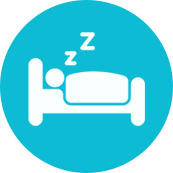Addiction Treatment
Beautiful and sunny Southern California is home to many dual diagnosis rehabilitation centers. The purpose of these centers is to provide treatment programs for individuals who may be struggling with drug or alcohol use as well as mental health disorders. Our industry-leading intensive outpatient and residential treatment facilities at Laguna Shores in Orange County offer evidence-based alcohol and drug treatment options for those hoping to achieve long-term sobriety.
When receiving treatment from certified drug and alcohol addiction recovery programs is being considered, it is encouraged to look at the details and services that each drug rehab or detox center has to offer. In many substance abuse instances, inpatient rehab has proven to be the most effective solution providing the best chances for a successful recovery. Inpatient addiction treatment centers typically offer additional activities and care options that struggling drug addicts have the opportunity to receive added benefits.
Modern and Effective Treatment
 Professional Evaluation & Medical Screening
Professional Evaluation & Medical Screening
All our staff entered this field because they’ve been personally touched by the disease of addiction.
We are committed to creating an environment that is safe and fun with people who can understand your challenges and celebrate your successes.
 Drug & Alcohol Detox Program
Drug & Alcohol Detox Program
Our medicala detox center can help you overcome the symptoms of withdrawal safely and comfortably.
Our addiction treatment staff is trained to address any complications that may arise during the detoxification process.
 Round-The-Clock Supervision
Round-The-Clock Supervision
Our inpatient drug and alcohol addiction rehab center in Dana Point, CA helps those struggling with substance use disorder (SUD) and need 24/7 care.
The inpatient rehab program provides our patients with the opportunity to overcome their addiction.
 Behavioral Therapy
Behavioral Therapy
Our therapy programs at Laguna Shores Recovery will help our patients understand their addiction and why it began. Our dialectical behavior therapy in Orange County develops a balance between thoughts emotions, and behaviors.
 Learning Opportunities & Developing New Skills
Learning Opportunities & Developing New Skills
At Laguna Shores Recovery we offer different services and programs that provide life skills to our patients. By learning these skills our patients can better integrate back into society and prevent the chance of relapse.
 Group Counseling
Group Counseling
When it comes to treatment for substance use disorders, it’s important to consider that addiction is more than a physical issue. It affects people in every area of their lives. Substance abuse can impact a person’s emotional and psychological well-being, as well.
Specialty Addiction Programs
Ready to Get Started?

Detox
The primary purpose of a drug or alcohol detox program is to help those with more severe addictions withdraw from the abused substance correctly and safely. Detox programs are typically not complete until any traces of the drugs or alcohol cannot be found anywhere in the patient’s system.

Inpatient Rehab
Inpatient treatment during the addiction rehab process typically offers structured and individually designed treatment programs that are meant to address every aspect of the patient’s condition because of their addiction.

Outpatient Rehab
Outpatient rehab programs are another form of addiction care that has been seen time and time again to be effective and helpful to many people.
All this while still being able to participate in treatment sessions that are scheduled throughout the week.

Sober Living
Sober living homes are unique and capable of serving individuals who have recently completed a form of addiction treatment. Many of these individuals are looking to prevent a relapse by continually developing new skills that can be implemented in the real world to help maintain their new healthy and sober lifestyle.
Rehab Program Types
The substance abuse specialists and medical professionals at our Orange County addiction treatment center are trained and qualified to be actively involved during the treatment progress, ensuring that each patient receives the appropriate level of care based on each of their individual needs.



 Matthew Beck B.A, M.A, LMFT
Matthew Beck B.A, M.A, LMFT 


